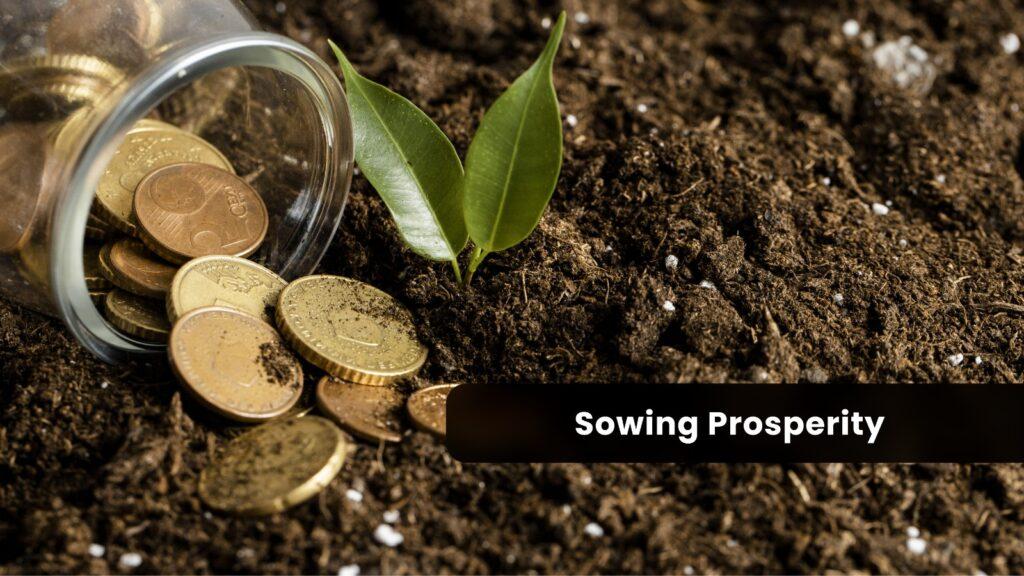Our financial well-being is significantly impacted by inflation, also known as the “silent wealth eroder.” The purchasing power of our currency declines when the average price level of goods and services rises steadily. It’s crucial to look into investment opportunities that not only keep up with inflation but also provide significant returns if we want to protect and increase our wealth. Farmland is one such investment that is frequently disregarded but is incredibly potential.
In this thorough investigation, we will delve into the complex world of agricultural investments and analyze the different components that make them a potent inflation hedge.
Understanding Inflation: The Silent Wealth Eroder
A long-term, persistent increase in the average price of goods and services is referred to as inflation. Although moderate inflation is regarded as a positive indicator of a robust economy, excessive inflation can deplete buying power and make it difficult to maintain one’s level of living and financial stability. Traditional assets, such as savings accounts, bonds, and even stocks, frequently fail to outperform inflation, leaving investors exposed.
Why Farmland?
Investments in farmland, a novel but intriguing choice, have proven remarkably resistant to inflation for a number of compelling reasons:
1.Value of Tangible Assets
A material asset having intrinsic worth is farmland. It is independent of market activity and corporate health, unlike financial instruments. The land itself has intrinsic value, and as time goes on, it usually becomes more productive, adding to its value as a true asset.
2. Natural Scarcity
The amount of arable land is roughly stable, despite the rising world population. Due to its inherent scarcity, farmland is a precious resource that is becoming more and more necessary as the need for food and agricultural products increases globally. Over time, the scarcity factor has a tendency to raise the value of land.
3. Creating Income
Farmland is a source of revenue in addition to being valuable land. It creates rental money when leased to farmers or utilised for agricultural enterprises. By supplying a constant source of revenue that tends to grow over time, this stable cash flow can help mitigate the effects of inflation.
4. Crops Resistant to Inflation
There are frequently favorable relationships between some crops and inflation, such as grains and commodities. The revenue from farming may increase as the cost of various agricultural items rises with inflation, acting as a natural hedge against declining purchasing power.
5. Risk Reduction and Diversification
A portfolio of investments that includes farmland benefits from diversity. It has a little correlation with conventional asset classes like stocks or bonds, which can reduce the risk of the entire investment. In times of rising inflation, this diversity can be particularly beneficial.
6. The Need for Food Security Worldwide
Securing acreage for food production is more crucial as the world’s population grows and climate change affects agriculture. The importance of preserving domestic food security is acknowledged by governments and organizations around the world, frequently leading to laws and investments that sustain agricultural values.
7. Performance with A History of Success
Farmland investments have historically produced competitive returns and worked well as an inflation hedge, according to historical statistics. Studies and studies frequently point out how well farmland performs when the economy is shaky.
Challenges And Things To Think About
Farmland investments provide many advantages, but there are also difficulties and things to think about:
- Farmland acquisition frequently necessitates a sizable initial investment, making it less feasible for some investors.
- Active management, such as crop selection, property leasing, and maintenance, may be necessary for profitable farmland investments.
- Market Dynamics: Crop prices, weather patterns, and local and international market dynamics can all affect how much farmland is worth.
- Location Affects Everything: The farmland’s location has a big impact on its potential for growth and revenue creation.
Conclusion
Farmland investments provide a strong and real buffer in a world where inflation is a continual threat and there are economic concerns. For investors looking to preserve and build their capital over the long term, their intrinsic value, income potential, and historical resistance to inflation make them a tempting investment. Before beginning a farmland investment journey, it is essential to undertake exhaustive due diligence, obtain professional guidance, and carefully analyze variables including location and management. Investors can plant the seeds of financial security and prosperity in this way, seeds that will withstand inflation and time. Farmland investments aim to cultivate permanent success in a constantly shifting financial environment, not only to protect money.
Having a focus on agricultural knowledge, Mogg’s Estates is a managed farmland company. Given the constantly rising demand for farms, we are aware of the fantastic opportunity that exists. Therefore, as a managed farmland firm, we work hard to not only offer you agricultural lands but also manage them on your behalf so that you can enjoy your farmlands and benefit from all of them. Email us right away to learn more.




